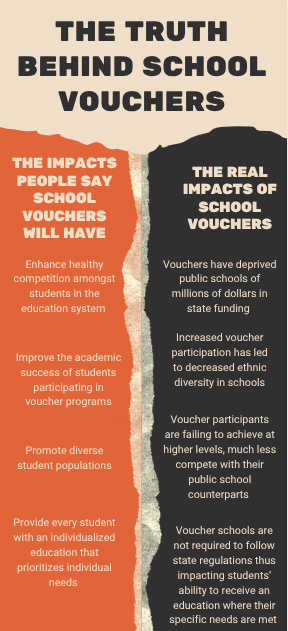In a lively cafe, a woman at a nearby table participates in an animated conversation with a friend. Her face lights up as the waitress hands her a delicious cappuccino. She smiles and thanks the waiter, excited to return to her conversation. On the other side of the room, a man solemnly sips his black coffee in silence as the struggles in life weigh him down. He dismisses the waitress when she comes back to ask for a refill. Preferring absolute isolation, the man returns to sipping his black coffee in utter silence.
These people sitting in the same cafe with contrasting emotions bring to light the question, is happiness a choice?
Happiness is a Choice
Happiness is a conscious choice that can transform daily experiences. While challenges are inevitable, finding the positive in every situation is essential. Like the woman in the cafe enjoying her coffee with a friend, even amidst the inevitable challenges of life. Additionally, viewing challenges as opportunities for growth can provide navigation through tough times.
Approaching each day with a mindset that seeks out goodness, regardless of circumstances, is crucial. Every day has good within it, although often hidden. Recognizing and embracing this good is the major change that will make all the difference.
That being said, this choice is not difficult. Whining about the bad parts of life will not change anything. It is the perspective switch that makes the change.
Happiness is not only an emotion. It is also a practice. This is how joy is chosen each day. Here are nine consistent practices to choose happiness:
Gratitude/Journaling
Daily journaling and writing down the things to be thankful for greatly increases happiness. Taking a few moments every day to write about moments of gratitude during the day, such as a warm cup of coffee or a kind gesture has been proven to increase happiness by 25%. This simple act boosts mood significantly and reinforces the ability to see joy.
Social Connections
Developing genuine and quality relationships with those present in life is vital in improving well-being. Strong social ties increase reported happiness by 50%. Simply think about someone who induces joy and employs a smile. Hold on to that connection and cherish it. Keep it at heart, especially amidst hard situations.
Mindfulness
This plays a big role in psychological satisfaction. Mindfulness helps reduce stress and promotes a positive outlook. This mindful and positive stance can increase satisfaction by 20-30%. Examples of mindfulness would be listening to the body, breathing exercises, and being aware and understanding of what is necessary for wellbeing.
Exercise
Physical activity releases endorphins, the hormone that boosts personal mood. Being consistent with the exercise is important to receive regular incoming happiness. The endorphins increase happiness by 30%. The body will also produce serotonin, norepinephrine, brain-derived neurotrophic factors, and dopamine, the reward chemical. All of which have huge positive benefits for the mind. The bottom line is that the combination of these five chemicals will boost mood, and have been proven to help relieve both anxiety and depression.
Acts of Kindness
Performing acts of kindness can increase happiness by up to 42%. Simply the act of helping others fosters feelings of purpose and satisfaction. This could merely mean holding the door open for someone or giving out a genuine compliment. Performing kind acts can also trigger the release of endorphins, often referred to as the “helper’s high.”
Setting Goals
Having goals to strive and work towards can cultivate a great feeling of achievement. Pursuing meaningful goals results in reported higher happiness levels. Not only achieving these goals but having something to promote focus and clarity can reduce overwhelming feelings and stress. This process becomes fulfilling over time, increasing happy feelings.
Work-Life Balance
Achieving a balance between work and personal life enhances happiness. Studies indicate that prioritizing work-life balance leads to better mental health. Consistency within the balance greatly reduces burnout, commonly experienced when one side outweighs the other. Work can also feel more manageable and rewarding when time is left for personal interests and hobbies. This also prompts a sense of control over life in general.
Optimism
Resilience is gained from a consistent optimistic mindset. This mentality causes a 20% increased chance of experiencing positive emotions. A broad perspective on life while focusing on those golden moments supplements the unconditional positive results optimism brings forth. The addition of hopefulness particularly within the challenges of life promotes an admirable attitude.
Sleep
Life satisfaction is partially determined by quality sleep. This rest for the mind and body is essential for joy. Life satisfaction is vastly improved when getting seven to nine hours of sleep. Consistent quality sleep plays a vital role in regulating positive emotions and reducing irritability and stress. Energy is also important when it comes to happiness. Energy is derived from sleep, enhancing overall well-being.
Integrating these habits into everyday life can enhance an overall sense of happiness and well-being. There is no reason to not choose happiness. Utilizing these benefits will make it even easier. Choose to be happy.
Happiness is not a choice
Happiness is that vibrant thread woven into the fabric of our daily lives, adding color and warmth to our experiences. But here’s the real question: can we truly control when we feel happy? The answer is a big, fat no. Happiness isn’t just a switch we can flip whenever we want; it’s a complex dance of many different factors.
Consider how our bodies and minds work together. Some days, you wake up feeling like you can conquer the world; other days, even the smallest task feels like climbing a mountain. Maybe it’s the people around us, the weather, or just the weight of our thoughts that can instantly shift our mood. With so many influences at play, the idea that we can simply choose to be happy starts to feel more like a fairy tale.
Emotion
Feelings and emotions are different. Emotions are complex psychological states of the brain that are immediate responses to external and internal stimuli. They develop instinctively, often without us knowing, as our bodies automatically react to things we encounter. Feelings on the other hand are conscious interpretations of emotions. They represent our understanding and reflection on what we are experiencing emotionally.
Therefore, someone can’t simply pick an emotion, such as happiness, it just happens naturally. We may strive for happiness, but it is not something we can simply choose. It is a natural outcome of our bodies reacting to different elements of our daily lives we face.
So saying that we have the ability to choose happiness is like saying we can choose our height or eye color. We can’t choose to be six feet tall or have brown eyes. So it’s just purely idiotic to think we can control something that happens naturally.
Genetics
Another factor that contributes to happiness being out of our control is heredity. Genes passed down from parents contribute to about 30%-50% of the variance of happiness.
A twin study published in the journal Personality and Individual Differences showed that identical twins had similar levels of happiness compared to fraternal twins. Meaning that those with identical DNA share the genes that contribute to happiness resulting in similar happiness levels. While those with different DNA sequences tend to have different levels of happiness; proving that deciding to be happy is just unrealistic.
Those who say that we can control our happiness are those who just don’t understand the facts. They are trying to go against biology, which is a battle that they are never going to win. It’s clear that happiness isn’t determined by us but by our biology.
Traumas and past events
Genetic factors are not the only things that influence happiness; psychological factors also have an influence. Traumas and past events can lead to long-lasting emotional distress. The pain and suffering caused by trauma directly affect our emotions causing us to experience happiness less often.
Extensive trauma can lead to an imbalance of the neurotransmitters in the brain.
Neurotransmitters are the chemicals responsible for our emotions. When working correctly neurotransmitters such as serotonin and dopamine allow us to experience happiness.
However, if there is an imbalance, then the neurotransmitters get oversupplied or undersupplied leading to anxiety, depression, and mood swings.
Since we can’t control factors such as stress and trauma, then how can we control our happiness? Neurotransmitters are not just something we can change with a flip of a switch. Therefore, we can not just turn on our happiness.
Life circumstances
Another factor that affects human happiness is life circumstances. Such circumstances include relationships, financial status, and health.
Relationships are an important part of mental health. If someone is in a toxic or abusive relationship with someone else then they could experience trauma. As stated above, trauma causes anxiety and depression which disrupt the balance of neurotransmitters. This overall causes less happiness in a person’s life.
Financial situations help to determine the environment around someone. If a person is rich they will be in an environment that suits all their needs and they will live with minimal struggle.
However, if someone is living in poverty then their environment will be less suitable for their needs. Not only this but these people living in poverty have to worry about job stability or working multiple jobs. With constant struggle and stress on one’s body, it’s hard for them to experience happiness and joy because they are worn out.
Finally, physical health plays a big role in happiness. If one is always sick or is struggling with disease then they are going to feel burnt out, because their body is spending so much time and energy fighting the illness. With continuous exhaustion from the battles within, one’s body is not in the right circumstances to produce hormones and neurotransmitters to cause or allow that person to be happy all the time.
Conclusion
Overall, the decision to choose happiness isn’t under our control. Many factors in our lives influence and mold when and how we experience happiness. Shockingly, some people in the world believe that happiness is just an easy decision. If it was up to us then why wouldn’t everyone choose to be happy all the time? The simple answer is that we can’t. Biological, physiological, and environmental factors all play a role in happiness. These complex factors are truly what determines our happiness, not us.








Connie Klinkman • Nov 5, 2024 at 11:55 am
Outstanding read….well researched and thought provoking. We both choose happiness but know it is an ongoing task to keep that state of mind. Bravo…well written!